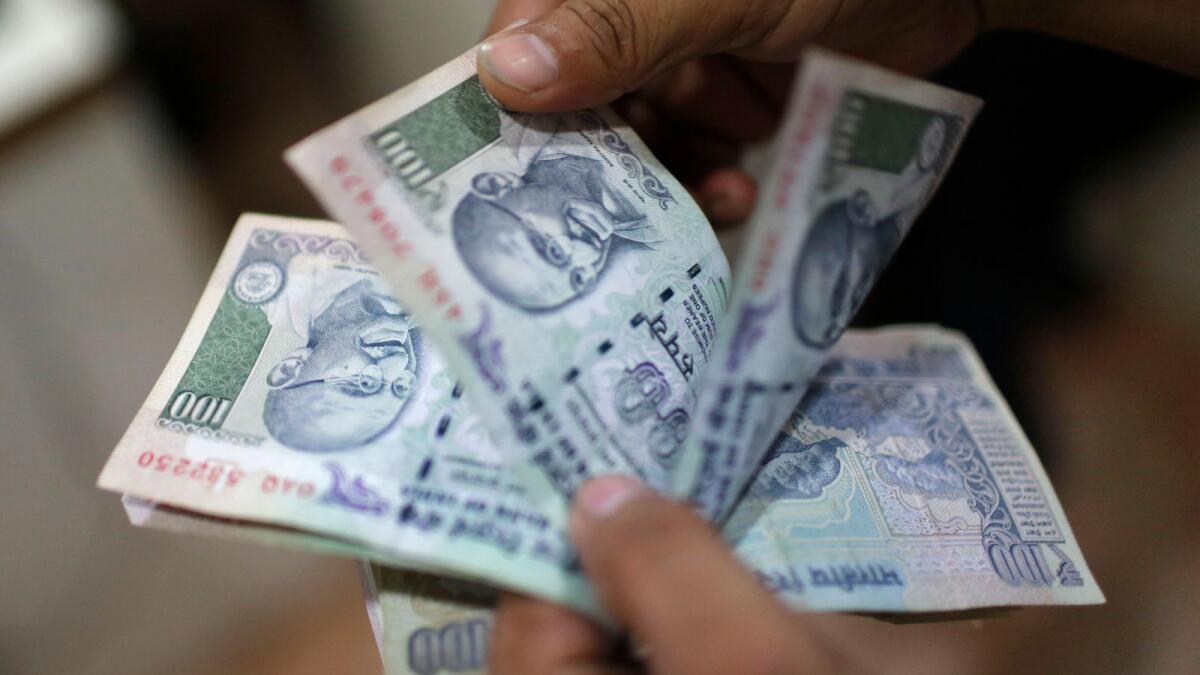The Indian rupee fell 12 paise to 83.56 in early trade, as a result of a further rise in US Treasury yields amid increasing expectations of Donald Trump winning the US presidency. This decline is in line with other Asian currencies, which were down between 0.1 per cent and 0.5 per cent, with the offshore Chinese yuan dipping below 7.3050 to the U.S. dollar. According to a currency trader, the rupee is expected to face challenges in the current market conditions.
The 10-year US yield climbed to nearly 4.50 per cent in the New York trading session on Monday, reaching its highest level in a month. This increase is attributed to the growing likelihood that Trump will emerge victorious in the November election, causing investors to demand higher yields on US Treasuries. Following criticism of President Joe Biden’s debate performance, the probability of a Trump win has risen to 60% on political betting website PredictIt.
Morgan Stanley noted that market participants are factoring in fiscal concerns and higher inflation due to potential election outcomes. The focus on elections and political uncertainty is driving price action in financial markets, particularly with the upcoming US and French elections. Despite weak US manufacturing data showing contraction for a third consecutive month in June, US yields continue to rise, indicating a strong response to political developments.
The global economic climate is being influenced by the upcoming elections and political events, affecting currency values and market trends. As the US presidential election approaches, investors are closely monitoring the situation and adjusting their strategies accordingly. The impact of these political factors on financial markets highlights the need for a proactive approach to risk management and decision-making.
With the uncertainty surrounding the election results and potential policy changes, investors are preparing for various scenarios and adjusting their portfolios accordingly. The volatility in currency markets reflects the broader economic uncertainties and geopolitical risks facing the global economy. It is essential for traders and investors to stay informed and adapt to changing market conditions to mitigate risks and capitalize on opportunities.
In conclusion, the Indian rupee’s decline in early trade reflects the broader trends in Asian currencies and the impact of political developments on financial markets. The upcoming US presidential election and other geopolitical events are driving market volatility and influencing investor sentiment. It is crucial for participants in the financial markets to stay updated on the latest news and developments to make informed decisions and navigate the changing landscape effectively. By staying vigilant and proactive, investors can better position themselves to manage risks and seize opportunities in the evolving market environment.








